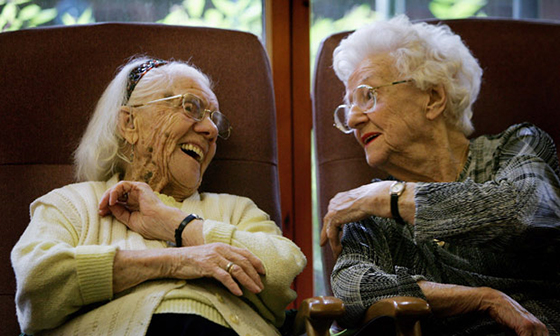According to a study by AARP and ResearchWorks, isolation among adults 50 and older is a growing epidemic, due in part to the changing face of American society:
45 percent of adults over 65 are divorced, separated or widowed
42 percent of Americans over 65 are disabled in some way
28 percent of those over 65 — and 46 percent of women — live alone
Americans who reach 65 today can expect to live, on average, an additional 20 years
Isolation and loneliness can have a harmful effect on health and well-being. It can impair cognitive performance, compromise the immune system and increase the risk for vascular, inflammatory and heart disease. Additional information published in the Journal of the American Medical Association suggests that loneliness in older persons increases the risks of early death.
On Lok is tackling these issues and is helping seniors overcome isolation and loneliness.
Identifying social isolation
Family members are usually the first to notice when seniors are falling victim to social isolation, but not all seniors have the benefit of loved ones who live nearby and can check on their well-being. For this reason, the On Lok Lifeways PACE program has an on-site team of behavioral mental health specialists and social workers focused on identifying isolation issues so the necessary interventions can be arranged. As part of the interdisciplinary team providing coordinated care, the mental health clinicians can work with the activities staff and social workers to improve socialization, provide stimulating activities, and foster new friendships. Interaction with volunteer young people and even children can also help minimize social isolation.
Fixing transportation issues
If a senior is unable to drive, transportation becomes a major barrier to his/her social life. On Lok Lifeways participants receive free round-trip transportation from their home to a PACE Center. Transportation is also available to and from visits to out-of- center doctors or medical facilities. On Lok Lifeways drivers are trained to assist elderly passengers and develop relationships with each passenger, and they’re also able to alert direct care providers of any changes in a participant’s mood or health.
Participate in social activity
Staying socially active and maintaining interpersonal relationships can help maintain physical/emotional health and cognitive function. Seniors who continue to maintain close relationships and/or find other ways to interact socially live longer than those who become isolated. Relationships and social interactions even help protect against illness by boosting the immune system. The On Lok PACE program is more than medicine. Each PACE center has a full calendar of recreational, social and cultural activities. Participants can partake in activities such as exercise classes, entertainment events, sports and music field trips, art classes – and there’s always free time for socializing.
Tackling isolation and loneliness among our country’s aging senior population is an issue we cannot ignore, both at an individual and larger community level. Identifying the need for potential interventions – from a mental health and social care level to working alongside family and/or activity staff – will help resolve issues successfully.
For more great information on maintaining a safe lifestyle while aging and to learn more about On Lok’s services, please visit our website.
